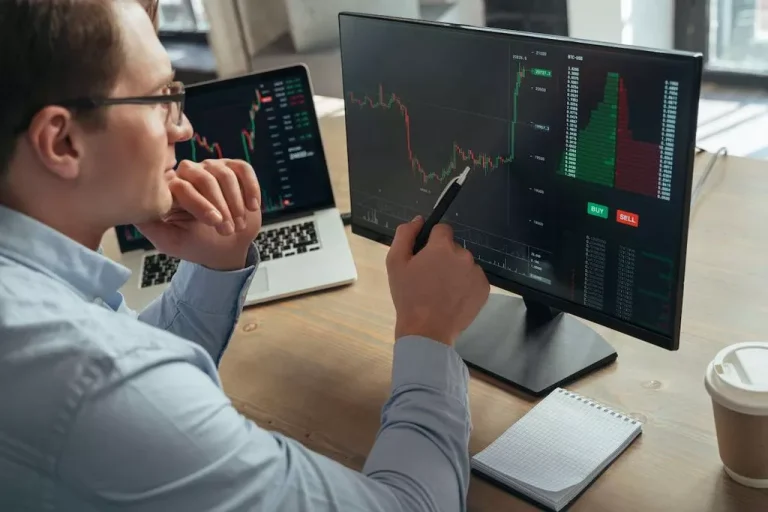With fractions, you presumably can start investing in US markets with as little as Re. (iii) carry unbiased analysis or analysis active trading vs passive investing, including on any Mutual Fund schemes or other investments; and supply any guarantee of return on funding. ##Tax benefits as per prevailing Section 10(10D) and Section 80C of the Income Tax Act shall apply.
Best Ship Constructing Shares In India
- BFL shall not be responsible or responsible for any loss or shortfall incurred by the investors.
- Unlike traditional merchandise, Unit linked insurance products are topic to market threat, which have an result on the Net Asset Values & the customer shall be answerable for his/her decision.
- As you may have noticed, after contrasting energetic vs passive investing, pros and cons could additionally be noticed.
- Ultimately it’ll depend on how a lot risk you’re snug with, what you want to obtain, and should you suppose energetic or passive portfolio strategy work better.
- Portfolio administration refers back to the process by which the fund supervisor buys and sells the underlying assets (equity, debt, gold, and so on.).
- Active investing refers to the fund actively managed by the fund supervisor of the coverage or plan you’ve invested in.
Three widespread funding strategies are lively investing, passive investing, and smart-beta investing. The debate about lively investing vs. passive investing is a never-ending one. However, knowing about these strategies will assist you to make higher selections that support your monetary goals. In the talk of active vs. passive fund efficiency, passively managed funds goal to solely replicate (not to beat) the performance of a particular market index. They are restricted to a selected index and investors are sure to those holdings, regardless of market developments or downfalls. There may be funds that beat the market, but they may hardly provide significant returns to their buyers.
The Controversy: Lively Vs Passive Funds

In this sort of investment, the insurance company takes possession of all the policy and plan issues and manages the methods themselves. Equity mutual funds, debt mutual funds, hybrid funds, or fund of funds, are all actively managed funds. Active portfolio management can carry greater risk because of its potential for misjudged funding decisions, higher turnover, and publicity to market fluctuations. Active managers’ ability to outperform the market is dependent upon correct predictions and timely choices. Buy-and-hold is a long-term investment strategy that focuses on buying and holding quality belongings with the objective of limited/ minimal buying and selling. By holding high quality belongings for longer time periods, we are relying on letting compounding returns present long term advantages.
Passive Investing Vs Active Investing

IRDAI or its officers do not contain in activities like promoting insurance policies, asserting bonus or funding of premiums. Public receiving such cellphone calls are requested to lodge a police grievance. Let’s take a look at the benefits and downsides of Active vs. Passive Investment to understand what is going to fit appropriately into your investment objective. Of all of the top-quartile home US funds as on Jun-19, 53.6% of the funds remained in prime quartile by Jun-20 and only four.8% remained in top quartile by Jun-21. An astute navigator who continually scans the horizon, making snap judgments to avoid turbulence and onto one of the best..
Causes To Buy Individual Health Insurance Over Group Medical Well Being Insurance Plan
They employ many funding strategies and techniques to buy and sell the assets at finest costs. You ought to undertake the funding method based on the danger you’re prepared to take in the market. If you possibly can take a excessive quantity of threat with applicable data, lively investing could possibly be a great option, in any other case passive investing may be carried out with monetary advisors. Active funding strategy presents flexibility to the merchants to make informed decisions as a result of they aren’t required to hold shares or bonds for a long time. These investors could make fast funding choices as per market actions. We know that passive traders follow a buy-and-hold method to investing.
Active Vs Passive Funds: Can Each Play A Task In Your Portfolio?
This trend of underperformance persists over longer durations, with 86.2% and 92.9% of active managers underperforming over 3Y and 5Y intervals, respectively. SPIVA, short for S&P Indices versus Active, is probably certainly one of the most detailed reviews on the topic. This research has been ongoing for 20 years and takes place in 9 completely different international locations, providing insights into how the funding world adjustments over time.
It is especially done with index funds to avoid the losses of individual property. The focus of passive investors is to generate steady returns over time with a objective to construct wealth steadily. Active buyers are often concerned in the market the place they actively handle their funds with the perspective of maximizing their returns. Active investors build environment friendly market abilities in addition to make use of multiple methods to investigate their good entry or exit factors.
Passive funds, by design, will rarely outperform the market, even during times of market turbulence, as a end result of their basic belongings are locked in to track the market. While a passive fund may sometimes outperform the market, it will by no means achieve the numerous returns sought by active managers until the market itself booms. Active managers, however, can generate higher returns (see below). As the name implies, lively investing is a hands-on course of that requires someone to function within the capacity of a portfolio supervisor. Active money management seeks to outperform the inventory market’s average returns and capitalise on short-term worth swings. It requires a more in-depth examination and the talent to find out when to enter or exit a particular stock, bond, or one other asset.
Professional fund managers choose which stocks to incorporate or take away strategically whereas managing actively managed funds. By leveraging market tendencies and individual stock efficiency, these funds search to beat the market as opposed to passively managed funds that solely monitor an index. The outperformance of actively managed funds in comparison to passive funds is determined by numerous components, such because the chosen benchmark index, length, asset class, market conditions, etc. In the US, over a 10-year interval, solely 25% of active funds beat their passive counterparts. One of the first variations between passive and energetic investments is the administration type.
However, one might keep in mind that there may be multiple elements that may have a positive or unfavorable influence on the fund efficiency, whether or not the fund manager is following an energetic technique or a passive technique. In addition to selecting which shares to add and which to take away, the fund manager may decide the focus of various sorts of shares in the plan in energetic investing. Active investing is riskier, counting on choosing particular person stocks and market timing. Passive investing is safer, spreading threat throughout a market index, minimizing the influence of any single stock’s efficiency and counting on long-term market development. Creating custom rule-based portfolios primarily based on elements like worth, size, volatility, and momentum is a key part of good beta strategies. These approaches aim to be cost-efficient whereas harvesting the benefits of factor-based investing.

Now, close to two decades later, he’s the vice chairman and head of the D2C enterprise department. He masters the skill of strategic administration, additionally being licensed in it from IIMA. He has challenged his challenges and contributed his efforts in this journey of digital transformation. A plan that supply guaranteed returns and financial safety for your family.
To determine which is better, you must think about your financial goals, risk tolerance, funding horizon, and preferences. For occasion, if you’d like a cost- and tax-efficient approach to invest and your investment horizon is lengthy, you presumably can consider passive funds. But if you’re okay with bearing greater investment costs for attainable outperformance and additionally have a moderately excessive danger urge for food, you probably can go for energetic funds. For instance, the common expense ratio of actively managed fairness funds within the US is around zero.68%, while that of passively managed funds is zero.06%. This large distinction in expense ratios of active funds and passive funds can be seen in India as properly.
However, one could minimise this threat and maximise their returns by being cautious with choosing the suitable funds, utilizing the funding calculator, and following the advice of consultants. To help you decide the suitable choice, we now have in contrast energetic investing vs passive investing. All the shares included within the particular index, in the same weightage, are included into the portfolio.
If you consider within the potential to outperform the market and are comfy with paying higher fees for active management, then actively managed funds may be appropriate for you. However, if you choose a low-cost strategy that offers broad market publicity, passive funds are a better fit. A mixture of each active and passive strategies could also be applicable for a well-diversified investment portfolio. The proven fact that an ETF directly maps an index is a passively managed fund’s function. If an investor is in search of lively administration, can financially afford an lively fund, and the risks and goals are in line then active funds could presumably be thought of. However, if an investor does not need the fund manager to take too many choices, wants the fund to simply map the benchmark, and does not need to take a danger, then passively managed funds might be thought of.
The expense ratio of passively managed funds is mostly lower than that of actively managed funds. Would you want a fund manager to actively handle your money or are you fantastic letting your investments merely monitor the market? Either means, you’re alleged to have an excellent understanding of active and passive funds. The debate on passive and energetic funds is repeatedly occurring in developed and growing economies.
Read more about https://www.xcritical.in/ here.
Добавить комментарий